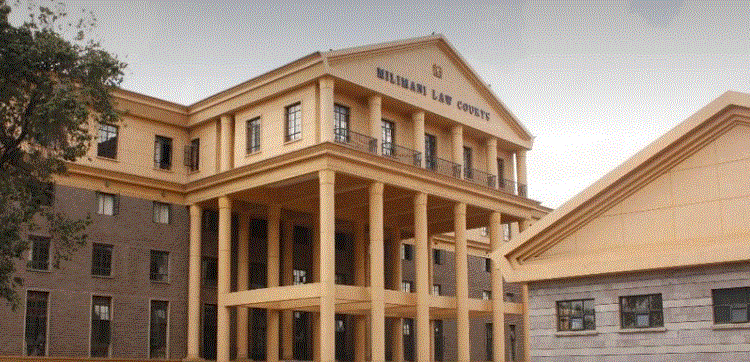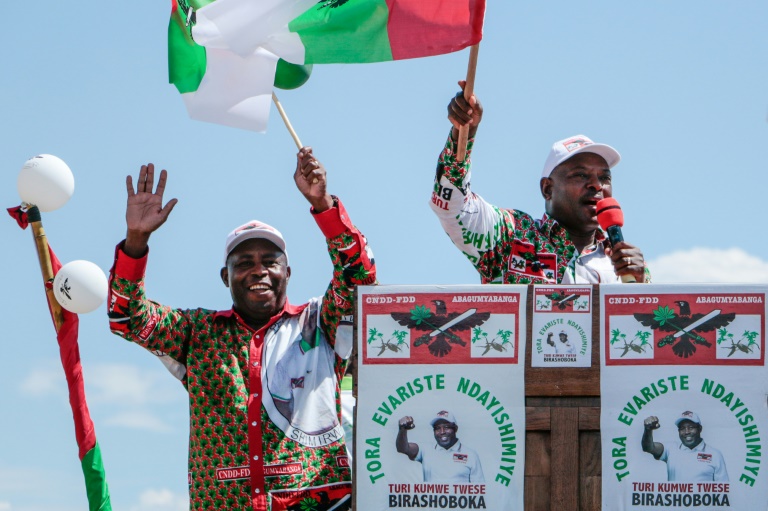By Susan Kendi
A case involving survivors of sexual and gender-based violence (SGBV) during the upheaval that followed the December 2007 presidential election has skipped the proceeding during which lawyers highlight their submissions before the judge.
On May 13, Willis Otieno, the lawyer representing the survivors and other petitioners, asked High Court of Kenya Judge Weldon Korir to skip this step because of the COVID-19 pandemic. Otieno did not elaborate but since Kenya’s first case of coronavirus was identified in mid-March the government has ordered several measures to reduce the spread of the virus, including requiring people to keep social distance. The judiciary has adopted similar measures, including holding only urgent cases or plea-taking proceedings in court.
These measures have limited the number of cases judges have been handling, creating a backlog. Several other cases were also scheduled for hearing before Judge Korir on May 13 meaning lawyers in the SGBV survivors’ case may have been constrained for time to present their submissions.
During the brief May 13 hearing, Otieno said the petitioners would like their written submissions to be considered as having been heard. Mitchelle Omuom said the group of respondents she represented did not object. Omuom is a lawyer from the Attorney General’s Office.
Judge Korir said the case file before him only had the petitioners’ submissions. Omuom and a lawyer representing an interested party in the case, Julie Soweto, said they had filed their submissions in October 2018. Judge Korir asked them to refile their submissions. He set June 8 as the day he will schedule a judgement date.
This case began when eight SGBV survivors, together with and four organisations, filed a petition on February 20, 2013 asking, among other things, that the court find the government failed to protect them during the violence that occurred between December 2007 and February 2008.
Out of the eight survivors, six are women and two men. The organisations involved in the petition are the Coalition on Violence against Women (COVAW); Physicians for Human Rights (PHR); the Kenyan section of the International Commission of Jurists (ICJ-Kenya); and Independent Medico Legal Unit (IMLU).
The petition is against the Attorney General; the Director of Public Prosecution; the Independent Police Oversight Authority; the Inspector-General of Police; the Minister for Medical Services; and the Minister for Public Health and Sanitation.
Senior prosecutor Jacinta Nyaboke Nyamosi was the last witness to testify in the case. Nyamosi led the sexual and gender-based violence division in the Office of the Directorate of Public Prosecutions (ODPP) when she testified in March and April 2017.
Nyamosi was asked to explain to the court why prosecutors looked into 150 sexual and gender-based violence case files but Commission of Inquiry into the Post-election Violence recorded 900 cases of sexual and gender-based violence. Nyamosi told the court that out of the 150 case files prosecutors secured 11 convictions, there was one acquittal and five cases were withdrawn. She also said there are three arrest warrants pending.
The commission referred to during Nyamosi’s testimony was formed in May 2008 to investigate the bloodshed that followed the December 2007 presidential election. The commission was formed as part of the agreement to end that bloodshed. It published its report in October 2008.
This case has been going on for seven years partly because five judges of the Constitutional and Human Rights Division have presided over it at different times. One of the judges, Isaac Lenaola, heard the evidence of all 16 witnesses for the petitioners before he was appointed to the Supreme Court in October 2016. Judge Chacha Mwita heard the evidence of the sole witness for the respondents, Nyamosi. In January 2019, Judge Mwita was transferred to the Kajiado High Court before he could hear the submissions of the different parties.
The May 13 hearing was held via the video conferencing platform, Microsoft Teams. Only Judge Korir was in court. The lawyers involved in the case contributed to the proceedings via Microsoft Teams from wherever they were located. Holding hearings via video conference is part of the decisions the National Council on the Administration of Justice (NACJ) took to allow court proceedings to continue while helping stop the spread of COVID-19 in the country. Chief Justice David Maraga chairs the council.







